
Brendan Gallagher continues his series looking at rugby’s great schools
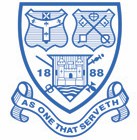
GUILDFORD’S finest hour, and major claim to rugby fame, was winning the inaugural Daily Mail U15 Cup in 1988, the first national Fifteens competition of its kind in the country. Trailblazers in the truest sense.
In this first-ever year of national competition there was no template to follow and RGS Guildford had to do it the hard way. It was decided that 32 counties would be represented by 32 schools and, with Surrey a powerhouse in schools rugby, a separate knockout competition was held within the county to decide who carried their flag.
So before they even played in the competition proper RGS had to beat Royal Alexander & Albert (24-0), Caterham (28-0), City of London Freemen’s (24-0), Pierrepoint (28-0), Dulwich College (6-0) and, finally, John Fisher (14-4) to earn the right to proceed. No.8 Gerrard Jackson, a lynchpin in an unusually strong pack, scored three pushover tries against Fisher.
Then came the really serious stuff. Lance McCarthy kicked three penalties in a 9-6 win over Middlesex champions London Oratory before they defeated St Joseph’s Ipswich with Neil Kent, Winta Jarvis and Russell Hill scoring tries in a hard-earned win.
In the quarter-finals Guildford overcame Richard Hale, the Hertfordshire champions and in a high quality semi-final they defeated Rossall – undefeated at U15 level for four years – 8-4 with tries from Jackson and McCarthy. All of which set up a final against Wellington College, considered overwhelming favourites on account of their brilliant backs who had been carrying all before them.
Finals are funny things though. Guildford had a strong enough pack and an excellently drilled defence and, much to the surprise of everybody except their own supporters, they won 12-0 with tries from skipper James Wydenbach and Kent. Rarely has a piece of silverware been so hard earned.
“It was a new experience for everyone, including the sponsors,” recalls coach Chris Pafford. “Because all the teams involved were selected as the best from their county it meant they were really tested throughout. I thought our first match against London Oratory was really on a knife-edge throughout as James Wydenbach’s team was not at its best and it required a last-minute penalty from Lance McCarthy to get us through.
“From then on the players got better and better and the defensive performances improved to meet the higher standards required. The semi-final against a fine Rossall School team was extremely tight and the boys held their nerve and produced a great team performance. In the final Wellington College were an excellent side, with some dangerous backs.
“To beat them required an outstanding performance from our forwards and tremendous defence from every single member of the team. The win was a due reward for the efforts of the whole squad and was helped by the wise assistance of Bob Griffiths, a former centre for Coventry RFC in their great years and England trialist, who was at RGS on an exchange year.
“I remember that the headmaster of the time John Daniel, a great supporter of rugby, was extremely happy with the team’s achievement. We were a team without star players really, it was a collective effort and involved a lot of hard work.”
Guildford featured in another notable Daily Mail campaign in 1992-93, this time at U18 level, although it ended less successfully with a painful defeat against the all-conquering Bradford GS side who were carrying all before them.
RGS Guildford, outwardly the epitome of a conventional straight-laced home countries grammar school, have nonetheless produced some rather distinctive and unusual rugby players, not least Jeremie Spencer, who later changed the spelling of his Christian name to the more conventional Jeremy.
Spencer was Guildford’s scrum-half and star man for a couple of years in the mid-50s and went on to play for England against Wales at Twickenham in 1966. An agile and gymnastic scrum-half he was the man who launched an exciting Harlequins back division for five or six seasons but he was also most decidedly a creature of the Sixties.
Spencer was quite an exotic figure, a brilliant artist, talented musician, linguist and man about town in the swinging Sixties who attracted much publicity at the time by converting an old bomb shelter into his home and artist’s den.
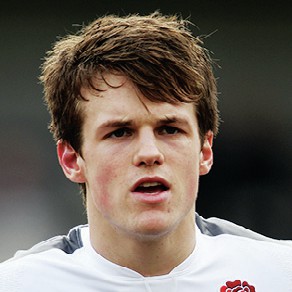
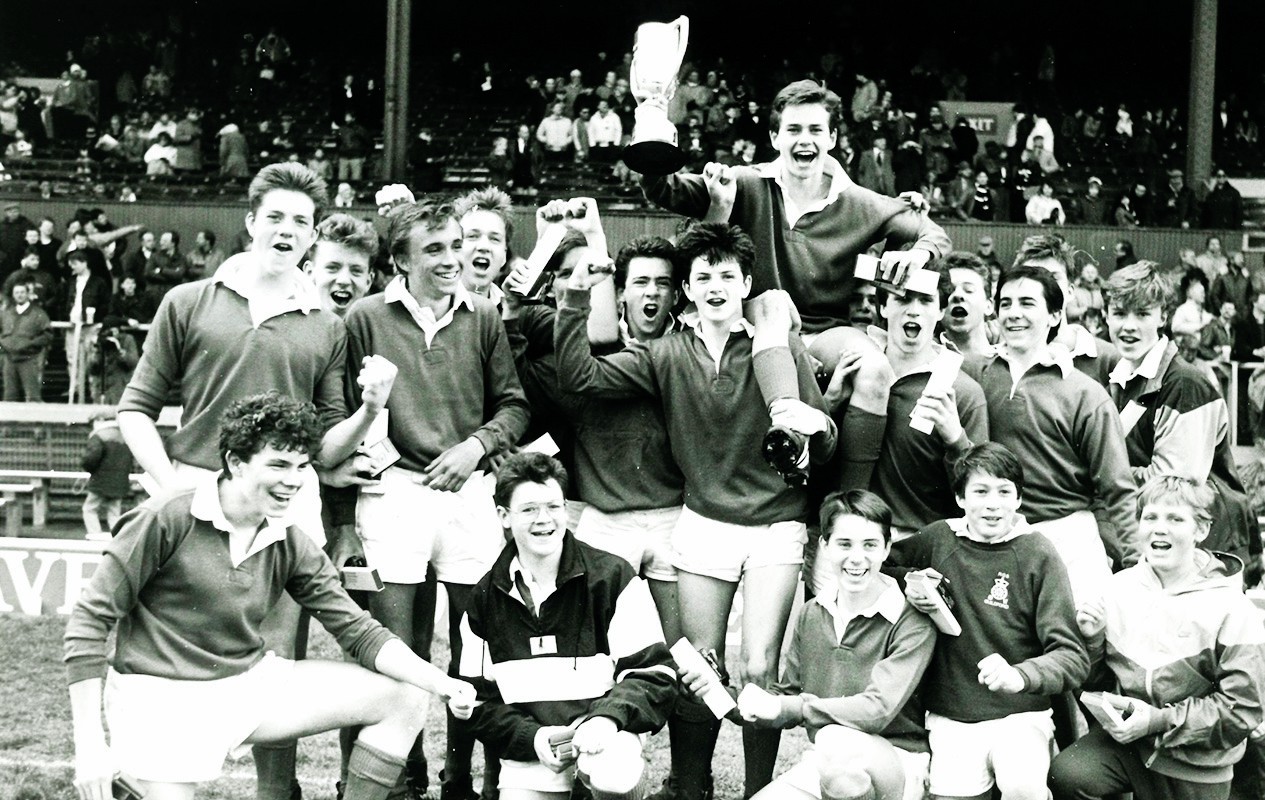
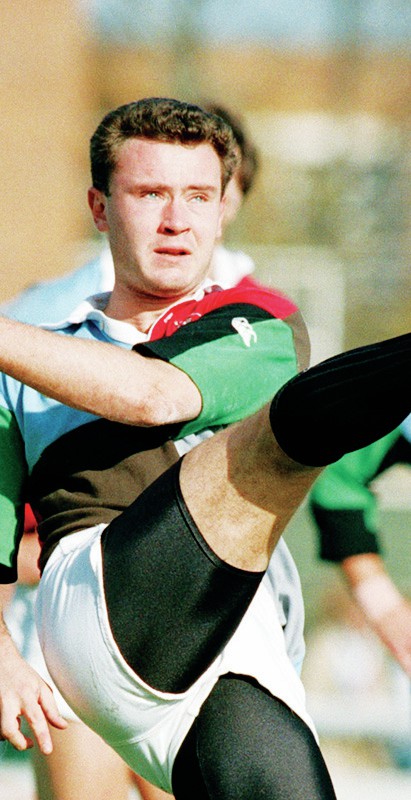
Towards the end of the decade he suddenly disappeared from the rugby scene, apparently travelling in Europe in his Volkswagen combie, and his story eventually got rather mixed up with the fate of another Jeremy Spencer, the former member of Fleetwood Mac who also disappeared around this time to join a religious sect only to occasionally be spotted at Bohemian gatherings across Europe.
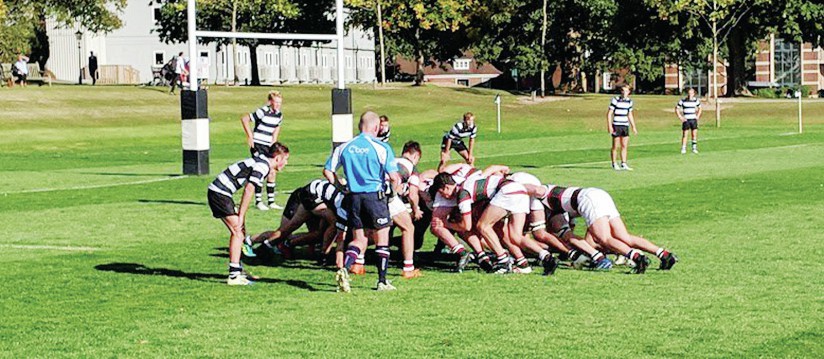
Eventually Guildford’s Jeremy Spencer resurfaced in the Basque region where he had been working in education, surfing and coaching age group rugby sides. He then hopped over the border and started coaching in Spain but not before, at the request of the RFU, he compiled an authoritative document on the whys and wherefores of coaching age group rugby which became the ‘bible’ on the subject for a number of decades.
An eclectic list of OG rugby luminaries would also include lock Neil Gillingham an outstanding figure in the school’s Fifteens in the early Seventies when he won England schoolboy honours before graduating to England Students and the U23 team. Gilingham played his club rugby for Leicester and also captained the RAF and, as the RFU’s senior vice president, is due to take over as president in August this year.
Paul Challinor was a talented cricketer as well as rugby player in the late Eighties and went on to enjoy considerable success with Harlequins whom he represented in two Pilkington Cup finals, while another who took the Quins route – the link with the club just up the A3 is a strong one – was the recently retired Mark Lambert who played for England Saxons and is a former RPA chairman.
Perhaps the best-known recent product is Jack Clifford, an outstanding schoolboy player at Guildford where he won England Schools honours and quickly made his mark after leaving RGS in 2011.
Just two years later he captained England to victory at the Junior World Cup in France in a side that also included Jack Nowell, Anthony Watson, Henry Slade and Wales’ Ross Moriarty. He broke into the full England team in 2016 and won ten senior caps before a badly dislocated shoulder led to two major reconstructions and he was forced to retire at the age of 27.
More recently the schools’ star product has been Alfie Johnson, a big centre with plenty of pace and agility. Johnson caught the eye of the England Sevens squad playing at the Rosslyn Park Sevens in 2019 and was fast tracked into the senior England squad, making his international debut in a Rugby Europe tournament in Poland later that year.
That earned a one year contract and Johnson has already made a good impression at the Hamilton and Sydney legs on the World Series, scoring a try in the bronze medal match in Hamilton, before Covid descended on the rugby world and temporarily halted a promising career.

1 Comment
You must be logged in to post a comment Login
Leave a Reply
Cancel reply
Leave a Reply
You must be logged in to post a comment.

Champions Cup
Champions Cup semi-finals: Best head-to-head matchups
























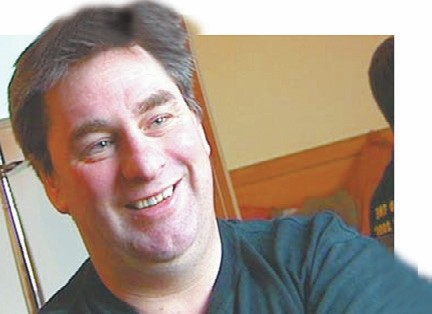
Gerard Jackson
1 March 2021 at 12:27 PM
Lovely article, great day to remember. Always surprised none of the team made it to the pro ranks, but perhaps Mr Pafford was right, we were a team greater than the sum of its parts.